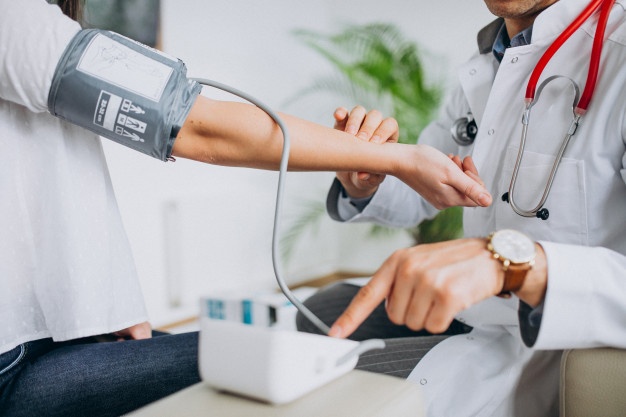What You Can Do When Medical Devices Malfunction
Medical devices cover a wide range of tools and equipment that have one common purpose—to help professionals determine why you’re ill and help you get better.
These include simple home test kits, standard lab tools, surgical implants, medical software, and computers. They ensure you get an accurate diagnosis and better treatment options.
While these devices undergo strict quality control during manufacturing and distribution, there are instances when medical devices break down.
Ineffective product design, low-quality manufacturing, and even user errors are some of the most common causes of medical device malfunction. You may quickly notice inefficiencies while other errors take time before the defect occurs.
Whichever the case, flawed medical devices can cause short or even long-term health consequences to patients. Malfunctioning equipment can render inaccurate diagnoses and lead to further injury or illness. Worse, continued use can even cause premature death.
It’s not just patients at risk for defective diagnostic tools and treatment machinery. Poorly designed medical instruments can affect the healthcare workers’ ability to provide quality care. Inadequate training, improper use, or poor equipment maintenance may also put their lives at risk.
Medical Device Malfunction
A medical device malfunction occurs when a piece of equipment fails to perform its intended use. Patients, caregivers, healthcare professionals, and hospitals must report these incidents, especially if they can cause severe injury or death.
So, what do you do when a medical device malfunctions at home, in the clinic, or in a hospital? Is there a protocol to follow on who and when you should report it? What are your options if you get hurt due to a device malfunction? These are just some of the questions that need to be answered by legal professionals.
It’s advisable to ask legal experts at Snapka Law or other law firms in your area that specialize in these kinds of issues, to guide you on the proper steps to take when medical devices malfunction.
1. Consult Your Doctor

Medical devices prescribed for home use usually require instructions to ensure proper use and maintenance. Patients learn how to operate them and even include some essential troubleshooting tips.
But when the device malfunction issue goes beyond changing batteries or swapping cords to provide sufficient power, it’s best to notify your doctor immediately.
Your doctor may advise you to stop using the device in the meantime. They may also put you under close monitoring for potential health complications. In addition, they may also ask you to bring the device to the clinic or hospital for further investigation.
Healthcare providers will then follow their facility’s reporting protocols regarding malfunctioning medical devices. Consequently, they can check if this is an isolated case or affects other patients. Their inquiry may even involve other practitioners and institutions to see if the reported malfunction is widespread.
2. Report Medical Malfunction
Aside from informing your doctor or the hospital, you can also go ahead and report the defect directly to the supplier. An incident report can compel them to track and investigate your case and decide on the best action to take. They can either opt for a lot of recall or remove the product entirely from the market.
If the device is from an unknown manufacturer, it would be best to forward your concern to the Food and Drug Administration (FDA) for assistance. They can trace the device supplier and inform them of the issue.
The FDA also encourages patients and consumers to submit reports about defective medical equipment, mainly when it results in severe injury or death. You can contact the agency through their hotline number. Additionally, you can also use the Med Watcher Mobile App for your concern.
Experts advise that you provide sufficient details about the malfunction and how it affects your health. Reporting allows the agency to render judgment regarding the issue. Moreover, they can issue an advisory to the public to warn them about the potential defect and, in some cases, enforce a recall of all defective devices.
3. Seek Advice From A Personal Injury Lawyer

While early reporting can prevent further injuries, some medical device malfunctions can lead to more sick days and high hospital bills. You may even experience long-term health side-effects or life-altering circumstances.
If these occur, it’s best to consult a personal injury lawyer regarding your legal options. They can determine who is liable for the adverse health consequences—the manufacturer, the hospital, or the health professional who recommended the device.
The unique circumstances of your case may involve one or more of the entities mentioned, especially if they knowingly issued the device despite its potential defects.
Your personal injury lawyer can then build a defective product claim using the reports you forwarded to the manufacturer and the FDA as evidence. Likewise, they will also collect supporting documents to secure compensation for the pain and suffering you experienced.
Lawyers will also advise you on the best course of action, such as pursuing a claim on your own or joining mass litigations with fellow victims. Whatever your decision, you can retain their services to represent you during a settlement or court trial.
4. Consider Other Medical Devices
A medical device malfunction may make you hesitant in using one for the rest of your life. However, it would help if you didn’t let a piece of faulty equipment prevent you from getting a well-deserved treatment. Use your experience as a gauge to make wiser medical decisions in the future.
Be open to exploring suitable alternatives to help you overcome illness and injury. Thorough research online can help you discover other similar yet safer devices that can even fit into your health insurance plan.
Furthermore, you can also ask friends and family members for recommendations. Also, your physician may also have better suggestions that will cater to your health needs.
Aside from getting a replacement for the defective device, you may also need to consult your doctor to treat further injuries caused by the malfunction. They can also advise additional medication to manage symptoms or suggest other medical equipment to aid your recovery.
On top of that, your health practitioner will carefully evaluate your current condition and select devices that will keep you safe in the long term.
Conclusion
Medical devices are beneficial when they serve their purpose. However, medical malfunctions are sad realities that pose severe patient health and consumer safety threats. Knowing how to deal with them can be crucial in preventing further illness and injuries for you and others.
To sum it up, medical device malfunction presents health and legal consequences. Reporting immediately ensures prompt investigation, while the legal process provides liability from all parties concerned. Patients and consumers may benefit from both actions as they can compensate for losses due to medical device malfunction.
Read Also:
- Myths and Misconceptions About Breast Cancer
- Medical Conditions Associated With Grieving Seniors
- Regulation of Diabetes: A need In This Dynamic Era



